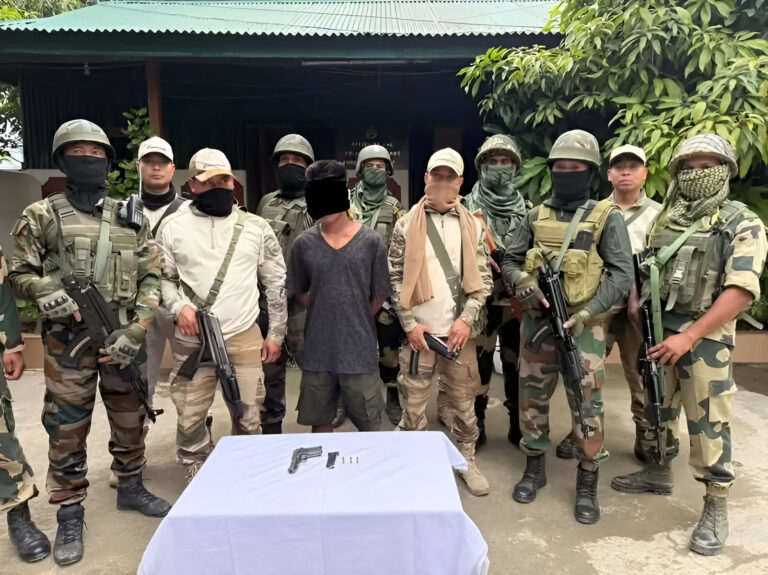Manipur Congress Condemns ED Summons: A Cry Against ‘Vendetta Politics’
Summary of the News Article
The Manipur Congress has sharply criticized the Enforcement Directorate’s (ED) summons to its leaders, labeling it as “vendetta politics” orchestrated by the ruling BJP. The party sees the move as an attempt to stifle opposition voices and undermine the democratic process in the state. This situation has sparked widespread discussion regarding the misuse of central agencies for political purposes.
Introduction: Political Turbulence in Manipur
Manipur’s political landscape has recently been a battleground for power, with tensions escalating between the ruling BJP and opposition Congress. A key flashpoint emerged when the Enforcement Directorate (ED) issued summons to senior Congress leaders in Manipur. The Congress party swiftly responded, accusing the BJP of using central agencies as tools for political retribution, dubbing the action as “vendetta politics.” But what does this political squabble mean for Manipur’s governance, democracy, and the larger issue of political ethics?
Let’s break it down.
Congress’ Reaction: A Strong Condemnation
Accusations of Vendetta Politics
The Congress party, once a dominant force in Manipur, has expressed outrage over the ED’s actions. Party leaders have accused the BJP of attempting to destabilize the opposition by weaponizing central agencies like the ED. According to the Congress, these summonses are not about enforcing the law but about suppressing dissent and creating fear among political rivals.
The term “vendetta politics” refers to using government power or institutions to take revenge on political opponents. The Congress has made it clear that they see this as a blatant example of such tactics. This isn’t the first time opposition parties in India have accused the ruling BJP of similar actions, adding weight to the allegations.
A Blow to Democratic Norms?
For many, the ED summons represents more than just an internal political conflict—it signals a potential threat to democratic principles. The Congress believes that the BJP’s use of agencies like the ED undermines the foundational tenet of democracy: the freedom to challenge and criticize those in power without fear of retribution.
The Congress has claimed that this action against its leaders in Manipur sets a dangerous precedent where opposition parties may hesitate to speak out or hold the government accountable for fear of being targeted. While the BJP denies these allegations, the optics of using central agencies against political opponents could have lasting effects on the perception of democracy in India.
What Led to the ED Summons?
Context of the Investigation
Though the specifics of the ED’s investigation haven’t been made entirely public, reports suggest that it pertains to allegations of financial irregularities. The Congress, however, maintains that these allegations are trumped up, designed specifically to cause political damage.
There’s a growing pattern in Indian politics where leaders from opposition parties are increasingly subjected to investigations by central agencies. This trend has raised questions about whether these agencies are truly functioning independently or being influenced by political motives.
Congress’ Defense Strategy
In response, the Congress party has taken a two-pronged approach: legal and public. On the legal front, the party has promised to fight the summons in court, confident that the accusations will not hold up under judicial scrutiny. Publicly, the party has doubled down on its narrative that the ED’s actions are politically motivated, seeking to rally public sentiment against the BJP.
The Congress’ defense also hinges on the argument that they are being selectively targeted. They argue that while several ruling party leaders face allegations of corruption, it’s primarily opposition figures who are investigated by central agencies.
Implications for the BJP and Congress in Manipur
Political Battle Heating Up
Manipur has witnessed fierce political battles between the BJP and Congress, especially after the BJP took power in the state in 2017, ending years of Congress rule. While the BJP has strengthened its grip on the state, the Congress remains a significant player, trying to regain lost ground.
This latest episode of ED summonses has added fuel to the fire. By portraying itself as a victim of political vendetta, the Congress hopes to garner sympathy and mobilize its base. Meanwhile, the BJP, by standing firm and justifying the ED’s actions, seeks to project itself as the party of law and order, willing to take tough stances against corruption.
Public Perception
In Indian politics, public perception is critical. The Congress’ efforts to paint itself as a victim of vendetta politics could resonate with voters who feel disillusioned by the current government. Manipur, like many states in India, is deeply affected by issues of corruption, unemployment, and governance. If Congress successfully leverages this moment, it could recast itself as a party that stands for democracy and the people, particularly in the face of alleged authoritarianism.
On the other hand, the BJP’s ability to maintain its stance that the ED summons is part of a legitimate investigation into corruption could help bolster its image as a party that fights graft and upholds accountability.
The Larger Trend: Are Central Agencies Being Misused?
A Pattern of Selective Investigations?
The ED’s actions in Manipur are not happening in isolation. Across India, there’s been a noticeable trend where opposition party leaders, particularly those critical of the BJP, are subjected to investigations by central agencies such as the Enforcement Directorate, Central Bureau of Investigation (CBI), and Income Tax Department. This pattern raises questions about the independence of these institutions and whether they are being used as political weapons.
For instance, in other states like West Bengal and Maharashtra, opposition leaders have faced similar actions from central agencies. In many cases, these investigations were initiated following public criticism of the central government or during election periods, leading critics to believe that they are politically motivated.
Impact on Indian Democracy
If political parties continue to perceive central agencies as biased or politically motivated, it could erode public trust in these institutions. In a democracy, institutions like the ED, CBI, and judiciary are expected to function independently and without political interference. Any perception that these institutions are being misused for political purposes could weaken the very fabric of India’s democratic structure.
This ongoing trend could also affect the future of political discourse in India. If opposition leaders face the risk of investigation for merely opposing the government, it could stifle political dialogue and dissent—two critical components of a vibrant democracy.
Conclusion: A Pivotal Moment for Manipur’s Politics
The ED summons to Congress leaders in Manipur has sent shockwaves through the state’s political scene. The Congress has framed this as a moment of crisis for democracy, accusing the BJP of vendetta politics aimed at silencing opposition voices. Meanwhile, the BJP continues to justify the summons as part of a larger anti-corruption drive.
This moment represents a crucial turning point not just for the Congress and BJP in Manipur but for Indian democracy at large. As the investigation unfolds, the public will be closely watching to see whether these allegations of vendetta politics hold up or if the BJP’s stance on fighting corruption gains traction.
What’s clear is that Manipur, a state already rife with political complexities, now finds itself at the center of a national debate about the proper role of central agencies in a democracy.
FAQs
- What are the allegations against Manipur Congress leaders?
The ED has issued summons related to alleged financial irregularities, but the Congress claims these charges are politically motivated. - Why is the Congress calling this “vendetta politics”?
The Congress argues that the ED summons is an attempt by the BJP to silence opposition voices and undermine democracy. - How has the BJP responded to these accusations?
The BJP maintains that the ED is conducting a legitimate investigation into corruption and that there is no political motivation behind the actions. - What is the larger trend in Indian politics regarding central agencies?
Many opposition parties across India have accused the BJP of misusing central agencies like the ED, CBI, and Income Tax Department for political purposes. - How might this situation impact future elections in Manipur?
This incident could galvanize Congress supporters and sway public sentiment, but it could also bolster the BJP’s anti-corruption image, making the upcoming elections more contentious.




